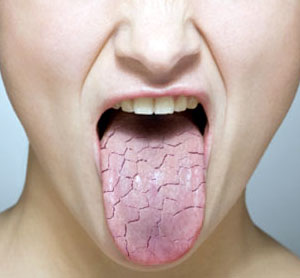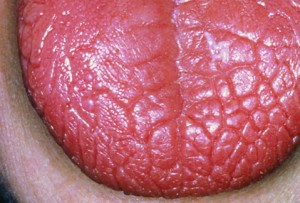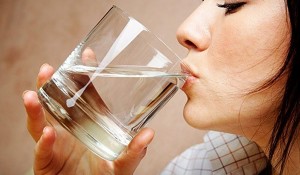Continued from Part 1
Having too little saliva
Dry mouth (xerostomia) is a complaint that is the most common salivary problem and is the subjective dryness which may be due to reduced salivary flow (hyposalivation) and/or changed salivary composition.
Advancing age is increasingly associated with dry mouth, but thus is usually due to medication or disease rather than age per se. age does, however, result in an increase in fatty tissue and in a reduction of salivary cells, in salivary reserve and in proteins.
Dry mouth causes
Sometimes you may complain of dry mouth but in fact, you have abundant of saliva. Having dry mouth at night, dry mouth in the morning or dry mouth while sleeping may occur as the saliva flow is naturally reduced at night or it can also be due to sleeping with your mouth open or breathing through your mouth. Other than this, the main causes of dry mouth are iatrogenic or induced.
Although the exact cause for dry mouth may be difficult to identify, the most common factors are the following:
- Drugs or medications are the most common cause for example anti-hypertensives, anti-psychotics, anti-depressants, muscle relaxants, anti-histamines and laxatives.
- Sjogren’s syndrome
- Dehydration, as in diabetes mellitus, diabetes insipidus, hyperparathyroidism or nay fever, is an occasional cause of xerostomia
- Emotional and anxiety states
- Menopause
- Negative fluid balance
- Selected nutritional and hormonal deficiencies
- Acquired immunodeficiency syndrome (AIDS)
- Anemia
- Frequent urination states
- Therapeutic radiation to the head and neck
- After bone marrow transplants
- Salivary gland disorders for example sialadenitis and salivary gland cancer
- Psychogenic causes may underlie the complaint of dry mouth
Clinical features of dry mouth
An individual with decreased saliva may complain of dry mouth alone or combined with other features, such as dryness of the eyes and other mucosa, with other eye complaints or there may be systemic features.
Dry mouth symptoms may include:
- Difficulty in swallowing, especially in eating dry foods
- Difficulty in controlling dentures in speech and swallowing
- Difficulty in speaking
- Mouth soreness
- Unpleasant taste or loss of sense of taste
- A dry mucosa
- Lipstick or food debris sticking to the teeth
- Lack of usual pooling of saliva in the floor of the mouth
- Thin lines of frothy saliva may form along the lines of contact of the oral soft tissues or in the vestibule
- Saliva not expressible from the parotid duct
- A characteristic lobulated tongue, usually red
- Complications of xerostomia
Oral complications
Dry mouth can cause or increase risk of:
- Tooth decay, which tends to involve smooth surfaces and areas otherwise not very prone to decay
- Gum diseases,
- Bad breath,
- Altered taste sensation,
- Burning sensation of the tongue,
- Sore mouth or cracks at the corners of the mouth,
- Infections in the mouth (thrush or candidiasis)
- Difficulty in speaking and swallowing
- For people without teeth, denture retention, comfort and ability to chew and speak may become difficult when less saliva is present.
- Sialadenitis (inflammation of the salivary glands), which presents with pain and swelling of a major salivary gland and sometimes with pus discharge from the duct.
Dry mouth management
Any underlying cause of dry mouth should, if possible, be rectified. Generally, dry mouth treatment consists of managing the medical condition causing the dry mouth, increasing saliva flow and preventing tooth decay. The following are steps on how to manage dry mouth:
- Saliva substitutes may help replace missing saliva and provide dry mouth relief. Various are available, including water and ice chips, and synthetic salivary substitutes.
- Frequent your water intake. Sip on juices and other fluids throughout the day. Take small sips of fluids with each bite of food at meal times.
- Salivation may be promoted with sugar-free chewing gums, diabetic sweets or drugs and dry mouth products that stimulate salivation (as advised).
- Have frequent small meals. Avoid spicy, dry or hard crunchy foods. Take small bites and eat slowly. Moisten foods with gravies or sauce.
- Efforts should be made to avoid factors that may increase dryness, such as dry hot environments, dry foods, drugs, alcohol (including alcohol-based mouthwashes), smoking and beverages that produce increased secretion of urine (coffee and tea).
- Oral complications, such as tooth decay, should be prevented and treated by avoiding sugary foods or drinks, having regular dental checkups and using fluoridated products.
- Prevent thrush and bad breath by keeping your mouth clean and as moist as possible. Remove dentures (if any) before you sleep and keep your dentures clean.
- The mouth should be hydrated as regularly as possible. The lips may become dry, weaken and susceptible to cracking and thus should be kept moist using a moist-based lubricant or a lanolin-based product rather than one containing petroleum-derived lubricants. Olive oil, vitamin E or lip balm may help.
- Maintain a good oral hygiene by tooth-brushing and flossing twice a day and use a fluoridated toothpaste or dry mouth toothpaste like Orajel® and Biotene®. Use an alcohol-free mouthwash or a mouthwash for dry mouth.


